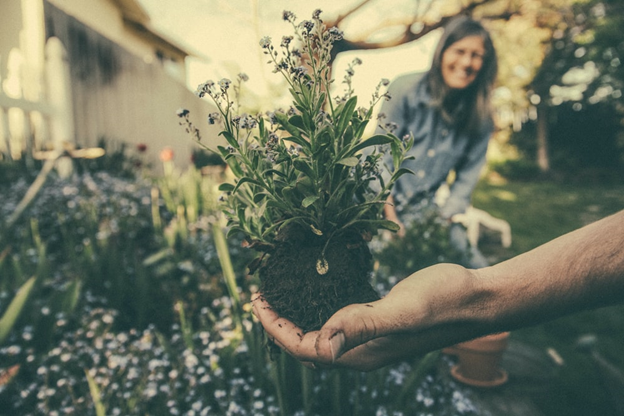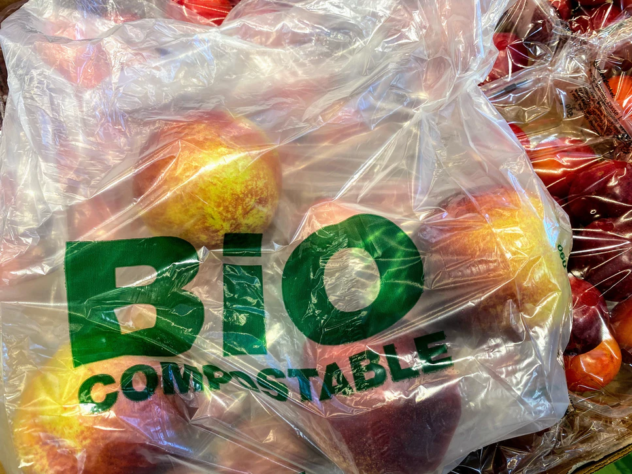
Published as Guest Post
If you have never considered composting to be a crucial part of your overall lifestyle regimen, you might want to take a step back and think that idea through again.
Composting is not only good for the earth, it can also be a great way to save you some money and make an impact in your own neighborhood.
Learn everything you need to know about how to start a great composting project in your own backyard with us today.

1. Learn the Basics
You might think composting is as simple as just picking a mound of dirt in your yard to throw your dinner scraps into, but a bit more goes into the process than that.
You need to choose a good location, make sure you are rotating the material that your compost lays on every few weeks, and more.
It takes some practice and some discipline, but following these simple rules will make your compost project that much more successful in the long term.
2. Have a Garden to Go with It
Nothing goes better with compost than a consistent source of fresh fruit and vegetables to keep it working, which is why you should do your best to maintain a home garden alongside it.
A victory garden can be a fantastic way to grow your own food, and it comes with a number of benefits: not only does it save you a bushel (pun intended) on grocery money every week, you also get to ensure you know exactly what goes into every meal you make regarding pesticides and GMOs.
Having a healthy body is as important as having a healthy earth, which makes a victory garden a perfect companion to your compost mound.
3. Learn From Outside Sources
As you have most likely noticed by now, composting does not start and end with simply throwing some organic material on a pile of dirt: there is a lot of science and technique that goes into it, and as far as that goes you cannot find a better source for up-to-the-minute food practices than our modern farmers.
Regenerative farming is one of the biggest and most promising trends to hit the farming world in the new millennium, and taking some pointers from this practice could take your own composting game to the next level.
Activities like biochar—i.e. the practice of burning dry wood and covering it with plant matter, which increases the efficiency of compost decay—can help you become the most earth-conscious person on your block.

4. Get Your Friends to Join In
Like everything in life, composting and eating healthy is better with friends. So f you are thinking of getting a composting project in motion, why not gather the squad together and share the love.
If none of your friends know the first thing about eating healthy, we can help them out no problem. And if all of you learn about composting together you will have an easier time amending the mistakes each other might make and learning how to build something great in tandem.
You can make living green the cool thing to do by getting your buddies involved and setting a great example for everyone else in your neighborhood!
5. Have the Right Supplies
You are not going to get very far in your composting endeavors if you are not equipped with all the right gear and farming equipment to get going with.
If your tool shed has been looking a little bit barren as of late, you should not try to start a large scale organic project until you have everything you need to make for a good composting project.
Alongside the basics that every man should have, you will also need things like shears, gardening gloves, manure or some other kind of growth solution, and a trusty rake or shovel that you can use to rotate the mound out with.
6. Learn About the Benefits
You will have far more motivation to make the best composting project you can muster once you understand exactly how much good composting can do not just for the earth as a whole, but for your community in particular.
Composting can do everything from saving you money at the grocery store to improving the overall quality of the water in your town.
And if you own your home you might be interested to know that the healthy blush your lawn will have after you enrich its soil may very well raise your property values as well.
The only possible downside to composting is that you have to work at it consistently. But the benefits for your body, your community, and your planet far outweigh the relatively small amount of effort you may have to put in, so what are you waiting for?
Do you have any composting tips that you want to share with us or any questions about the process that we did not get around to answering here? Leave us a comment below and join a wide community who are dedicated to living their best lives.

Guest Author: Katie Tejada is a writer, editor, and former HR professional. She enjoys writing about events, travel, decorating trends, and innovations for the home, but also covers developments in HR, business communication, recruiting, real estate, finance, law, and investing.